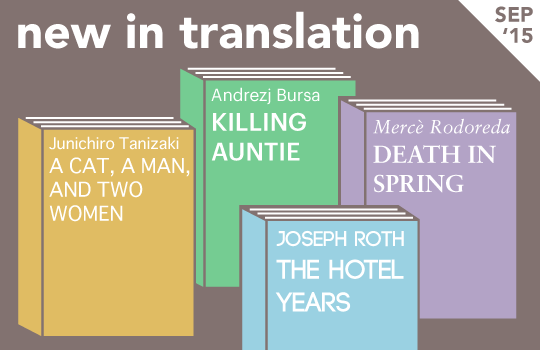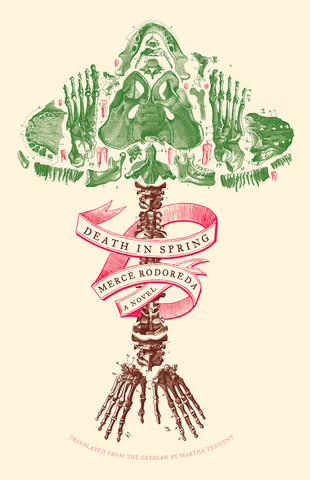The unemployed Mr. Fistulka came by our housing bloc, and leaning against the buzzer he pressed all the call buttons at once.
And all at once all went to the buzzer
And all at once all answered
And at once all in different voices, each in their own intonation, melody and pitch, in their own way bellowed loudly into the buzzer:
“Helllllooo?”
“Who is it?”
“Hello?”
“Who’s there?”
“You little fucker, what do you want in the middle of the night?”
As the symphony of voices echoed though the housing block, Fistulka asked in a hushed voice:
“Why am I here?”
I mean to say Fistulka asked about the meaning of his life. Night after night, sounding that same sentence in our heads.
Even Mr. Bolczyk, who survived all the occupations and somehow got a good night’s rest each night, would now only lay in bed staring at the ceiling, then get up nervously and lighting a cigarette, he would bounce around the apartment like a moth beating its wings against a glass lampshade.
And Lalek, the sheet metal worker stopped going to work. He closed down his car repair shop and now sits on the bench under the Osieka Epiphany, fixing his gaze on the periwinkle blue ceiling.
Fistulka infected our housing block with his question. Each of us walked around pale like vampires, tripping from a lack of sleep on the holes in the sidewalk; unemployed because it’s understood that before a person can really start living they have to answer that fundamental, “why?”
Only two places got busier, the church and the supermarket, Jericho. A few even started hanging themselves.
And it’s all because of unemployment: when Fistulka had a job, no one on our housing block contemplated the meaning of life.
In an emergency meeting, our housing block community convened. All heads agreed and a decree was reached to occupy Fistulka with “something.”
But I have to confess that nothing came of it. A strong fraction rose up against the decree. The owner of the supermarket claimed that what differentiates a man from an animal is that a man can search for his own meaning. The priest agreed in collusion like never before, and the one from the Galaxy funeral home chimed in, too.
So Fistulka continued walking around the housing blocks, tormenting people with his stupid question. He probably would have continued for a long time and I don’t know what would have happened to our housing block if the rabbit didn’t finish him off with his ears.
It was like this: Mr. Krasik the hunter that lived on the 20th floor—right next to Ms. Janina, Mr. Obrabek’s and the blunt smoker’s servant— killed a rabbit and hung it out in the freezing cold to get him ready for Christmas eve. The rabbit hung head down, stiff as an icicle, and just as Fistulka walked up under Krasik’s house about to pronounce his, “Why am I here,” the rabbit slipped out from between the rope and speared his ears like two blades into Fistulka’s head.
Then the question became irrelevant because Fistulka was no more.
That’s how the matter resolved happily and on its own. The priest said in a sermon that it was the housing block that we all carry inside us that killed Fistulka along with his question and he declared Fistulka a saint who died a martyr’s death in the hands of the rabbit, a symbol of our housing block’s wickedness (or something like this). And now we live peacefully, without questioning anything.
Only sometimes, when the buzzer rings in the middle of the night do we jump to our feet and wonder about the meaning of life.
Translated from the Polish by Beatrice Smigasiewicz
Lidia Amejko is a playwright and a short story writer. Her publications include When the Mind is Asleep–the Answering Machine Turns On, The Passion in the Bottle, and Stories Out Loud, among others. She has been nominated multiple times for the prestigious literary NIKE award and translated into German, French and Bulgarian. She often adapts her stories for stage and radio production, and it’s this practice that seems to inform her use of language. Her fabulist style has been compared to Olga Tokarczuk’s. This story is taken from her second book, The Lives of Housing Block Saints, (2008), which was a winner of the Polish Book Editors Prize.
Beatrice Smigasiewicz is a Fulbright scholar living in Warsaw and an editor-at-large for Asymptote. Her work has appeared in Denver Quarterly, Art Papers, Words Without Borders, and BODY, an international online literary journal, among others. She holds an MFA from the Nonfiction Writing program at the University of Iowa, where she also studied literary translation.
*****
Read More Translations:




